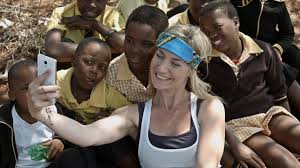مردم افریقا



مقدمه
مردم افریقا
آفریقا قارهای است با تاریخ، فرهنگ و تنوع بینظیر. مردمان آفریقا به خاطر ویژگیهای مشترک فرهنگی و اجتماعی خود در این قاره به عنوان یک مجموعه واحد شناخته نمیشوند، بلکه این مردم در گروههای مختلف قومی، زبانی و مذهبی زندگی میکنند. با وجود تفاوتهای فراوان، ویژگیهای مشترک مانند مهماننوازی، ارتباطات قوی خانوادگی و پیوندهای عمیق با طبیعت، میتوانند به عنوان عناصر مشترک در فرهنگهای مختلف آفریقا شناخته شوند.
مردم افریقا
۱. تنوع قومی و زبانی در آفریقا
آفریقا خانه بیش از ۱,۵۰۰ گروه قومی و بیش از ۲,۰۰۰ زبان مختلف است. این تنوع باعث میشود که قاره آفریقا یکی از پیچیدهترین مناطق از نظر قومیت و زبان باشد. در این بخش، به بررسی بزرگترین گروههای قومی مانند هوسا، یوروبا، زولو و مصری خواهیم پرداخت و به زبانهای مختلفی چون عربی، سوحیلی، آمهره، و آفریکانس اشاره خواهیم کرد.
۱.۱ گروههای قومی
مردم افریقا
- هوسا: یکی از بزرگترین گروههای قومی در غرب آفریقا که عمدتاً در نیجریه و نیجر ساکن هستند.
- یوروبا: گروهی در غرب آفریقا با جمعیت قابل توجهی در نیجریه.
- زولو: یکی از گروههای بزرگ در جنوب آفریقا.
- مصریها: در شمال آفریقا و مرکز تمدنهای باستانی.
۱.۲ زبانهای آفریقایی
مردم افریقا
- عربی: به ویژه در کشورهای شمال آفریقا.
- سوحیلی: زبان مشترک در شرق آفریقا.
- زبانهای بانتو: در مناطق مرکزی و جنوبی.
۲. تاریخ و تمدنهای آفریقا
مردم افریقا
آفریقا سرزمین تمدنهای باستانی است. مصر باستان یکی از بزرگترین و معروفترین تمدنهای تاریخ است که تأثیرات زیادی بر فرهنگ، علم و هنر دنیا گذاشته است. علاوه بر آن، امپراتوریهای بزرگی مانند کارتاژ، مالی، گانا و سوکوتو نیز در تاریخ آفریقا نقش مهمی ایفا کردهاند.
۲.۱ مصر باستان
مردم افریقا
- اختراعات علمی مانند تقویم و ریاضیات.
- فرهنگ و هنر باستانی مصر که آثارش هنوز هم در موزههای مختلف جهان موجود است.
۲.۲ امپراتوریهای بزرگ آفریقا
مردم افریقا
- امپراتوری مالی: مرکز تجاری و فرهنگی در غرب آفریقا.
- امپراتوری گانا: یکی از اولین امپراتوریهای آفریقا که در تجارت طلا و نمک مشهور بود.
- سوکوتو: امپراتوری اسلامی در غرب آفریقا که تأثیرات زیادی در فرهنگ اسلامی آفریقا داشت.
۳. دین و مذهب در آفریقا
مردم افریقا
دین در زندگی مردم آفریقا نقش بسیار مهمی دارد. بیشتر مردم آفریقا به یکی از دو دین اصلی ایمان دارند: اسلام و مسیحیت. اما در کنار این دو دین، آیینها و باورهای سنتی آفریقایی نیز هنوز در بسیاری از مناطق پایدار است.
۳.۱ اسلام و مسیحیت
مردم افریقا
- اسلام در شمال آفریقا و همچنین در غرب و شرق آفریقا غالب است.
- مسیحیت در بخشهای جنوبی و مرکزی آفریقا رواج دارد.
۳.۲ آیینهای سنتی آفریقا
مردم افریقا
- دینهای سنتی و باورهای آنها به طبیعت و ارتباطات روحانی.
- رقصها، مراسمهای مذهبی و سنتهای قدیمی که در جشنها و مراسمهای خاص برگزار میشود.
۴. اقتصاد آفریقا
آفریقا با داشتن منابع طبیعی غنی از جمله نفت، طلا، الماس و منابع دیگر، یکی از مناطق حیاتی جهان از نظر اقتصادی است. با این حال، بسیاری از کشورهای آفریقایی هنوز با چالشهای اقتصادی جدی روبرو هستند، از جمله فقر، جنگها و مشکلات سیاسی.
۴.۱ منابع طبیعی
- معادن و منابع طبیعی: طلا، الماس، نفت، گاز طبیعی.
- کشاورزی: محصولات عمده مانند کاکائو، قهوه، پنبه، برنج.
۴.۲ چالشهای اقتصادی
- فقر و بیکاری بالا.
- نابرابری اقتصادی.
- مشکلات زیرساختی و فساد سیاسی.
۵. فرهنگ و هنر آفریقا
آفریقا با تاریخ و فرهنگ غنی خود شناخته میشود. هنرهای آفریقایی در حوزههای مختلفی از جمله موسیقی، رقص، نقاشی و مجسمهسازی برجسته هستند. موسیقی سنتی آفریقایی تأثیر زیادی بر موسیقی جهانی گذاشته است.
۵.۱ موسیقی و رقص
- سبکهای موسیقی مانند آفرودنس، هیپ هاپ و سبکهای سنتی.
- رقصهای محلی که در مراسمهای مذهبی و اجتماعی اجرا میشود.
۵.۲ هنرهای تجسمی
- هنر مجسمهسازی آفریقا: تاثیرات عظیم بر هنر معاصر جهانی.
- نقاشیهای سنتی و رنگهای استفادهشده در تزئینات فرهنگی.
۶. چالشهای اجتماعی و سیاسی در آفریقا
آفریقا با چالشهای زیادی از جمله جنگها، ناآرامیهای سیاسی، فقر، کمبود آموزش و خدمات بهداشتی و تغییرات اقلیمی روبرو است.
۶.۱ جنگها و ناآرامیهای سیاسی
- جنگهای داخلی در کشورهای مختلف مانند سودان، لیبی و نیجریه.
- بحرانهای سیاسی و اجتماعی و تأثیر آنها بر زندگی مردم.
۶.۲ فقر و نابرابری
- مشکلات دسترسی به آموزش و بهداشت.
- تاثیرات منفی بر وضعیت زنان و کودکان.
۶.۳ تغییرات اقلیمی
- خشکسالیها، قحطیها و تأثیر تغییرات آب و هوایی بر کشاورزی و زندگی مردم.
۷. زنان در آفریقا
نقش زنان در آفریقا بسیار مهم است. آنها نه تنها در خانه، بلکه در اقتصاد و سیاست نیز نقش حیاتی دارند. با این حال، زنان آفریقا با چالشهای زیادی از جمله تبعیض و خشونت روبرو هستند.
۷.۱ زنان در سیاست
- حضور زنان در رهبری سیاسی: رئیسجمهورهای زن در آفریقا.
- جنبشهای زنان و تأثیر آنها بر حقوق زنان و کودک.
۷.۲ زنان در اقتصاد
- زنان به عنوان کشاورزان، تاجران و کارگران در صنایع مختلف.
نتیجهگیری
مردم آفریقا با تاریخ، فرهنگ و تنوعهای بینظیر خود نقشی مهم در تاریخ جهان ایفا کردهاند. این قاره باوجود چالشهای فراوان، همواره در حال پیشرفت و توسعه است و به عنوان یک منبع عظیم فرهنگی، اجتماعی و اقتصادی برای دنیا شناخته میشود. شناخت بهتر و عمیقتر از مردم آفریقا میتواند به درک بهتر و تعامل مؤثرتر با این قاره در زمینههای مختلف منجر شود.
Certainly! Below is a long article in English about the people of Africa. This article provides an overview of the diversity, history, culture, economy, and challenges that shape the lives of Africans.
The People of Africa: Diversity, History, Culture, and Challenges
Introduction
Africa is the second-largest continent in the world, both in terms of land area and population. Known for its rich history, diverse cultures, and vast natural resources, Africa is a continent of profound complexity. The people of Africa, made up of over 1.4 billion individuals, are incredibly diverse, with hundreds of ethnic groups, languages, and traditions. From the ancient civilizations of Egypt to the bustling urban centers of Lagos and Nairobi, the people of Africa share both unique identities and common experiences shaped by geography, history, and culture. This article aims to explore the diverse peoples of Africa, their history, cultural practices, social structures, economic conditions, and the challenges they face.
۱. Ethnic and Linguistic Diversity in Africa
Africa is home to more than 1,500 ethnic groups and over 2,000 languages, making it one of the most linguistically and ethnically diverse continents in the world. These groups differ in terms of traditions, values, and social structures, but they also share certain commonalities, such as a deep connection to the land and community.
۱.۱ Ethnic Groups in Africa
Some of the largest and most well-known ethnic groups in Africa include:
- The Hutu and Tutsi: Predominantly in Central and East Africa, especially in Rwanda and Burundi, these two groups have a complicated and sometimes tragic history, particularly in the context of the Rwandan Genocide.
- The Zulu: A major ethnic group in Southern Africa, with a rich cultural heritage and a strong presence in South Africa.
- The Yoruba: One of the largest ethnic groups in West Africa, mainly in Nigeria, with a long history of cultural and religious influence.
- The Berbers: Indigenous people of North Africa, particularly in Morocco, Algeria, and Tunisia. They have a distinct language and culture and are traditionally associated with the Maghreb region.
- The Maasai: A semi-nomadic group known for their distinctive customs and dress, mainly found in Kenya and Tanzania.
۱.۲ African Languages
Africa’s linguistic diversity is vast, with languages belonging to several major language families:
- Afro-Asiatic Languages: Including Arabic, spoken widely in North Africa and parts of the Horn of Africa.
- Niger-Congo Languages: These include Swahili, Yoruba, and Zulu, and are spoken by the majority of Africans in Sub-Saharan Africa.
- Khoisan Languages: Known for their unique click sounds, these languages are spoken by smaller groups in Southern Africa.
- Nilo-Saharan Languages: Spoken by several ethnic groups in the Nile Valley and parts of the Sahel.
۲. The Rich History of Africa
Africa’s history is incredibly diverse, with ancient civilizations and empires that laid the foundation for modern culture, science, and politics. The history of Africa has been marked by the rise and fall of powerful empires, colonization by European powers, and the enduring resilience of its people.
۲.۱ Ancient African Civilizations
Some of the most notable ancient African civilizations include:
- Ancient Egypt: Perhaps the most famous of all African civilizations, Egypt is known for its monumental architecture, including the Pyramids and the Sphinx, and its advancements in mathematics, astronomy, and medicine.
- The Kingdom of Kush: Located to the south of Egypt, in modern-day Sudan, Kush was a powerful civilization that ruled Egypt for several centuries.
- The Carthaginian Empire: Centered around the ancient city of Carthage (in modern-day Tunisia), it was a major rival of Rome and a key player in Mediterranean history.
- The Kingdom of Aksum: An influential kingdom in present-day Ethiopia, Aksum was one of the great powers of the ancient world and played a key role in early Christianity.
- The Mali Empire: A rich and powerful empire in West Africa, known for its wealth, particularly from the trans-Saharan trade routes.
۲.۲ Colonialism and its Impact
The European colonization of Africa in the 19th and early 20th centuries profoundly changed the continent. It led to the redrawing of boundaries, often without regard to ethnic and cultural divisions, which caused lasting political and social instability. Colonization also resulted in the exploitation of Africa’s resources and the imposition of foreign rule, which led to numerous conflicts and struggles for independence. Countries like Kenya, Nigeria, Algeria, and South Africa fought hard for independence, and many of these struggles were marked by violence and bloodshed.
۳. Religion and Beliefs in Africa
Religion plays a significant role in the lives of many Africans. While Islam and Christianity dominate the religious landscape, African traditional religions continue to thrive, particularly in rural areas.
۳.۱ Christianity and Islam
- Christianity: Introduced by European missionaries, Christianity has spread across Sub-Saharan Africa, especially in countries like Nigeria, Ethiopia, and South Africa. Many Africans practice a blend of Christianity with indigenous beliefs.
- Islam: Predominantly practiced in North Africa and parts of East and West Africa, Islam has a long history on the continent, dating back to the 7th century. Countries like Egypt, Nigeria, and Somalia have significant Muslim populations.
۳.۲ African Traditional Religions
- Many African people adhere to indigenous religious beliefs that emphasize a connection to nature, ancestors, and the spiritual world. These beliefs often include rituals, sacrifices, and ceremonies intended to honor spirits and deities.
- Animism and Ancestor Worship are common practices in many African societies, with an emphasis on maintaining harmony between the living and the dead.
۴. The Economy of Africa
Africa is rich in natural resources, including oil, diamonds, gold, and rare minerals, yet it faces many economic challenges, including poverty, unemployment, and inequality. The continent has a mixed economy, with agriculture being the primary source of livelihood for many people, alongside an emerging industrial and service sector.
۴.۱ Agriculture and Natural Resources
- Agriculture: Africa is home to vast agricultural land, and crops like coffee, cocoa, sugar, and cotton are important exports. However, farming is often subsistence-based, and many rural communities struggle with access to modern farming techniques and markets.
- Natural Resources: Africa is one of the richest continents in terms of natural resources, including oil in Nigeria and Angola, gold in South Africa, and diamonds in Botswana. However, resource exploitation has often been linked to corruption, conflict, and environmental degradation.
۴.۲ Economic Challenges
- Poverty: Despite the abundance of natural resources, many African countries continue to face extreme poverty. This is often a result of political instability, corruption, and a lack of access to education and healthcare.
- Unemployment: A significant portion of Africa’s youth is unemployed or underemployed, which contributes to social unrest and challenges in economic growth.
- Infrastructure: Many African countries struggle with poor infrastructure, which hinders economic development. Roads, electricity, and water supply systems are often inadequate in rural and urban areas.
۵. Culture and Arts of Africa
Africa is home to a rich cultural heritage that spans music, dance, art, literature, and architecture. The cultural diversity of the continent is reflected in its numerous traditions, languages, and artistic expressions.
۵.۱ Music and Dance
- Music: African music is diverse, but common themes include rhythmic drumming, call-and-response vocals, and the use of traditional instruments like the djembe, balafon, and kora. African music has had a profound influence on global music, with genres such as jazz, blues, and hip-hop tracing their roots to Africa.
- Dance: Dance is integral to African culture, often serving as a means of storytelling and expression. Traditional dances vary by region and ethnic group but are typically performed during ceremonies, festivals, and social events.
۵.۲ Visual Arts
- African art is often used in religious and ceremonial contexts, including masks, sculptures, and body art. These art forms are not only aesthetic but also deeply spiritual, reflecting the beliefs and social structures of the people.
۶. Social and Political Challenges in Africa
Africa faces a range of social and political challenges, including conflict, corruption, and inequality. However, there have also been significant strides toward democratization and regional cooperation.
۶.۱ Conflict and Violence
- Many African countries have experienced internal conflicts, often fueled by ethnic divisions, resource competition, or political instability. Notable conflicts include the Rwandan Genocide, the civil wars in Sudan and the Democratic Republic of the Congo, and the Boko Haram insurgency in Nigeria.
۶.۲ Corruption and Governance
- Corruption remains a significant issue in many African countries, hindering development and contributing to inequality. However, several African nations are making progress in improving governance and fighting corruption, with increasing accountability and transparency in some regions.
۶.۳ Education and Health
- Access to quality education and healthcare remains a challenge in many African countries, particularly in rural areas. Efforts to improve literacy rates, reduce disease, and increase life expectancy are ongoing but face many hurdles.
Conclusion
The people of Africa are as diverse and complex as the continent itself. From the ancient civilizations to the modern challenges faced by its nations, Africa has a rich cultural and historical legacy. Despite the many obstacles the continent faces, the resilience, creativity, and strength of the African people continue to shape the future of the continent
.





















